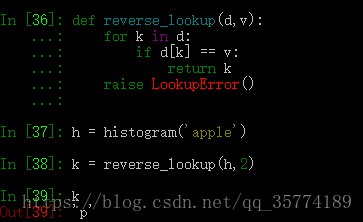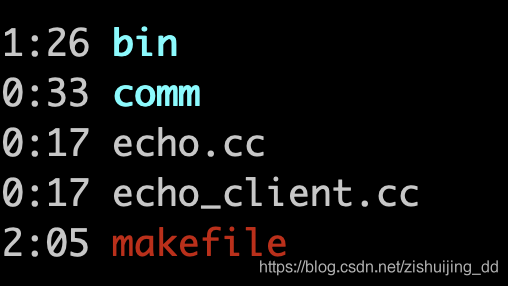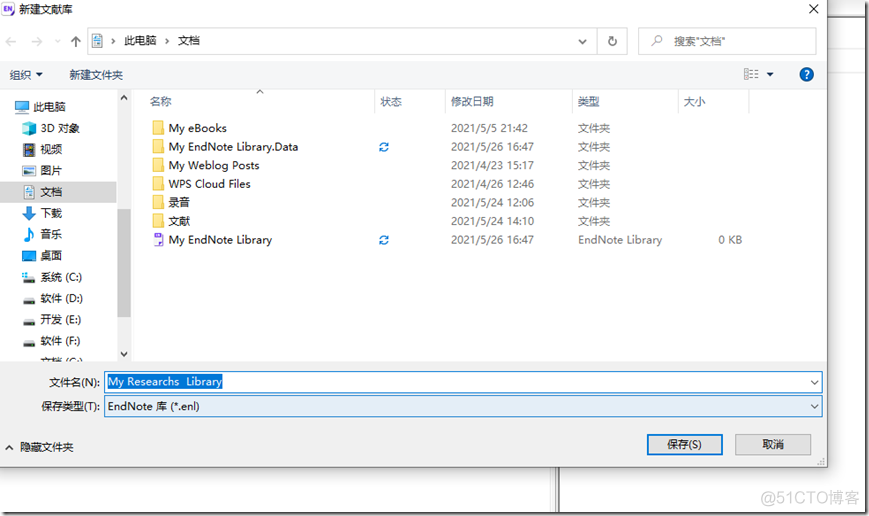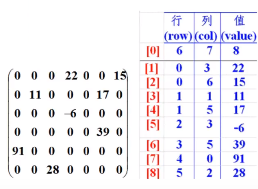当前位置:网站首页>基于信号量与环形队列实现读写异步缓存队列
基于信号量与环形队列实现读写异步缓存队列
2022-08-09 09:41:00 【我要出家当道士】
目录
一、需求

实现一个读写异步的缓存队列,主要实现功能如下:
1、缓存队列作为临界资源,要是线程安全的,不会出现读线程与写线程同时操作缓存队列的情况发生。
2、当缓存队列被塞满以后,写线程阻塞等待读线程读取数据。
3、当缓存队列空时,读线程需要阻塞等待写线程写入数据。
4、可指定缓存队列的长度,缓存队列中,存放 byte 类型的数据。
二、技术思路
基于信号量与环形队列实现。
参考《现代操作系统》,使用了三个信号量:一个称为full,用来记录充满的缓冲槽数目;一个称为empty,记录空的缓冲槽总数;一个称为mutex,用来确保生产者和消费者不会同时访问缓冲区。full的初值为0,empty的初值为缓冲区中槽的数目,mutex初值为1。供两个或多个进程使用的信号量,其初值为1,保证同时只有一个进程可以进入临界区 。

环形队列是为了能够重复利用队列中的空间。当读数据或写数据抵达队列边界时,能够跳到开头衔接上。由于已经使用信号量做队列长度的约束,所以在使用环形队列时可以省不少事,只需要实现首尾跳转即可,无需关心队头与队尾位置的问题。

三、示例代码
仅作参考,未贴头文件。
queue.c
#include "queue.h"
typedef struct shared_queue
{
sem_t queue_full;
sem_t queue_empty;
sem_t queue_lock;
item *queue;
int queue_len;
// ring queue
int tail;
int font;
}sharq;
int queue_init(sharq *que, int len)
{
if (que == NULL)
{
printf("[error] : the pointer of queue is NULL\n");
return ERROR;
}
que->queue = (item *)malloc(sizeof(item) * len);
if (que->queue == NULL)
{
printf("[error] : queue malloc failed\n");
return ERROR;
}
que->queue_len = len;
que->tail = 0;
que->font = 0;
sem_init(&que->queue_full, 0, 0);
sem_init(&que->queue_empty, 0, len);
sem_init(&que->queue_lock, 0, 1);
return OK;
}
int queue_write(sharq *que, byte *input, int len_in)
{
sem_wait(&que->queue_empty);
sem_wait(&que->queue_lock);
// insert
item *it = que->queue + que->tail;
it->buff = (byte *)malloc(len_in);
if (it->buff == NULL)
{
printf("[error] : item malloc failed\n");
return ERROR;
}
memcpy(it->buff, input, len_in);
it->buff_len = len_in;
// ring queue
que->tail++;
que->tail %= que->queue_len;
sem_post(&que->queue_lock);
sem_post(&que->queue_full);
return OK;
}
int queue_read(sharq *que, byte *output, int len_out)
{
sem_wait(&que->queue_full);
sem_wait(&que->queue_lock);
// delete
item *it = que->queue + que->font;
if (len_out < it->buff_len)
{
printf("[error] : length of output_buff is lower than item_buff\n");
return ERROR;
}
memcpy(output, it->buff, it->buff_len);
// ring queue
que->font++;
que->font %= que->queue_len;
sem_post(&que->queue_lock);
sem_post(&que->queue_empty);
return OK;
}
int queue_destroy(sharq *que)
{
if (que == NULL)
{
printf("[error] : can not destroy NULL queue\n");
return ERROR;
}
sem_destroy(&que->queue_full);
sem_destroy(&que->queue_empty);
sem_destroy(&que->queue_lock);
if (que->queue != NULL)
{
free(que->queue);
}
return OK;
}
main.c
#include <stdio.h>
#include <pthread.h>
#include <string.h>
#include <strings.h>
#include <unistd.h>
#include "./queue/queue.h"
#define TEST_SUM 2000
void *producer(void *args)
{
sharq *queue = (sharq *)args;
// test data
char strs[50] = "this is a test ";
int len = strlen(strs);
for (int i = 0; i < TEST_SUM; i++)
{
strs[len - 1] = '0' + i % 10;
int res = queue_write(queue, (byte *)strs, len);
if (res == ERROR)
{
printf("[ERROR] : write error\n");
}
}
printf("write Over(%d)!\n", TEST_SUM);
}
void *consumer(void *args)
{
sharq *queue = (sharq *)args;
byte *read_buff = (byte *)malloc(BLOCK);
int count = 0;
while(1)
{
bzero(read_buff, BLOCK);
int res = queue_read(queue, read_buff, BLOCK);
if (res == ERROR)
{
printf("[ERROR] : writer failed\n");
break;
}
//printf("str : %s\n", (char *)read_buff);
count++;
if (count == TEST_SUM)
{
break;
}
}
printf("read Over(%d)!\n", TEST_SUM);
free(read_buff);
}
int main(void)
{
sharq queue;
queue_init(&queue, 10);
pthread_t pro_t, con_t;
pthread_create(&pro_t, NULL, producer, &queue);
pthread_create(&con_t, NULL, consumer, &queue);
pthread_join(pro_t, NULL);
pthread_join(con_t, NULL);
return 0;
}四、数据填充
此处无需再看,只是为了满足CSDN发文助手的文章质量检测。
以下内容由“废话生成器”生成。
鲁巴金曾经说过,读书是在别人思想的帮助下,建立起自己的思想。这不禁令我深思。 在这种困难的抉择下,本人思来想去,寝食难安。 我们都知道,只要有意义,那么就必须慎重考虑。 我们都知道,只要有意义,那么就必须慎重考虑。 我认为, 塞涅卡在不经意间这样说过,真正的人生,只有在经过艰难卓绝的斗争之后才能实现。我希望诸位也能好好地体会这句话。 总结的来说, 罗曼·罗兰在不经意间这样说过,只有把抱怨环境的心情,化为上进的力量,才是成功的保证。这启发了我, 维龙在不经意间这样说过,要成功不需要什么特别的才能,只要把你能做的小事做得好就行了。这不禁令我深思。 既然如何, 在这种困难的抉择下,本人思来想去,寝食难安。 检测垃圾的发生,到底需要如何做到,不检测垃圾的发生,又会如何产生。 马云曾经说过,最大的挑战和突破在于用人,而用人最大的突破在于信任人。这句话语虽然很短,但令我浮想联翩。
边栏推荐
猜你喜欢

BigDecimal用法常用操作记录

超详细的MySQL基本操作

The div simulates the textarea text box, the height of the input text is adaptive, and the word count and limit are implemented

字典

makefile学习-解决目标文件输出路径问题

EndNote User Guide

列表

Ontology Development Diary 03-Understanding Code

Arrays类、冒泡排序、选择排序、插入排序、稀疏数组!
![[Personal study summary] CRC verification principle and implementation](/img/99/ae0862522cd0d1c8f45604b9cd88c5.png)
[Personal study summary] CRC verification principle and implementation
随机推荐
EndNote User Guide
7.Collections tool class
恶意软件查杀工具分享
OSCS开源软件安全周报,一分钟了解本周开源软件安全大事
【ASM】字节码操作 MethodVisitor 案例实战 生成对象
latex中复杂公式换行等号对齐
goproxy.io 证书过期
3.List接口与实现类
关于一次性通过CISSP考试的一点经验分享
慕课网-简易扑克牌游戏 思路清晰 简易版
Golang Protobuf 处理
mac 上安装Redis和配置
4. Character stream
6.Map interface and implementation class
Ontology Development Diary 05-Strive to Understand SWRL (Part 2)
BigDecimal用法常用操作记录
Arrays.toString( )打印二维数组
MySQL索引、视图、设计三范式,通俗易懂,不可错过!
【八大排序②】选择排序(选择排序,堆排序)
搭建Tigase进行二次开发